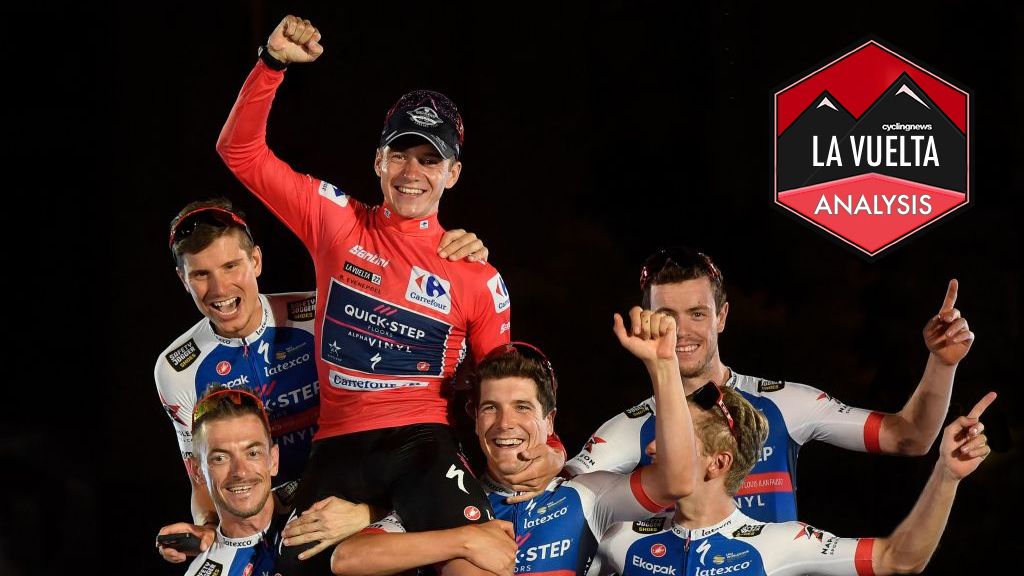The 77th Vuelta a España concluded with Remco Evenepoel standing on the top step of the podium and no one is really surprised that at the age of 22 he has won his first Grand Tour.
Ever since he burst into the professional ranks the young Belgian has produced one remarkable performance after another. One-day events, week-long stage races and Classic monuments have all been mastered and now in a natural progression he has followed those wins up with the most varied of the Grand Tours.
Even a career threatening crash at Il Lombardia nearly two years ago has barely affected his rise to the very top of the pro hierarchy and now he faces a decision. Where does he go from here?
Actually if we’re being truthful it’s not where but when, and that means his Tour de France debut. For the moment the talk is of preferring a return to the Giro d’Italia, his first Grand Tour experience. However, there’ll be clamour that he ought to forgo that choice and go straight to the Tour de France in July.
That’s perfectly understandable given his performances at the Vuelta and yet there are some caveats to consider in the decision making process before committing to stepping up to the most important race on the professional calendar.
Firstly let’s start with idea that the Giro is a natural progression in building towards a serious Tour de France challenge. A quick look through the past three editions gives the following winners, Richard Carapaz, Tao Geoghegan Hart and Jai Hindley, all of whom were present and soundly defeated in Evenepoel’s march to victory in Madrid.
None of them were ever serious contenders and that’s saying as much about the current form of those individual riders as it is about the slow descent of the Italian race’s status. Now that it comes before the Tour it’s been avoided by the favourites for that race due to the risk of leaving too much energy on Italian roads.
The perfect example is Mathieu van der Poel’s disastrous Tour de France after a Giro where, for the first 10 stages, he was his usual effervescent self. The risk of not recovering is now judged too great and so to send Evenepoel to Italy certainly means a Tour de France challenge is no longer considered a serious proposition.
On the other hand the final week of the first of the Grand Tours would be more of a true test of where Evenepoel’s climbing really lies. The Vuelta is hard but it rarely has consecutive big days in the mountains the way that happens in the Alps or Dolomites.
Sure, the ascents…
Click Here to Read the Full Original Article at CyclingNews RSS Feed…

